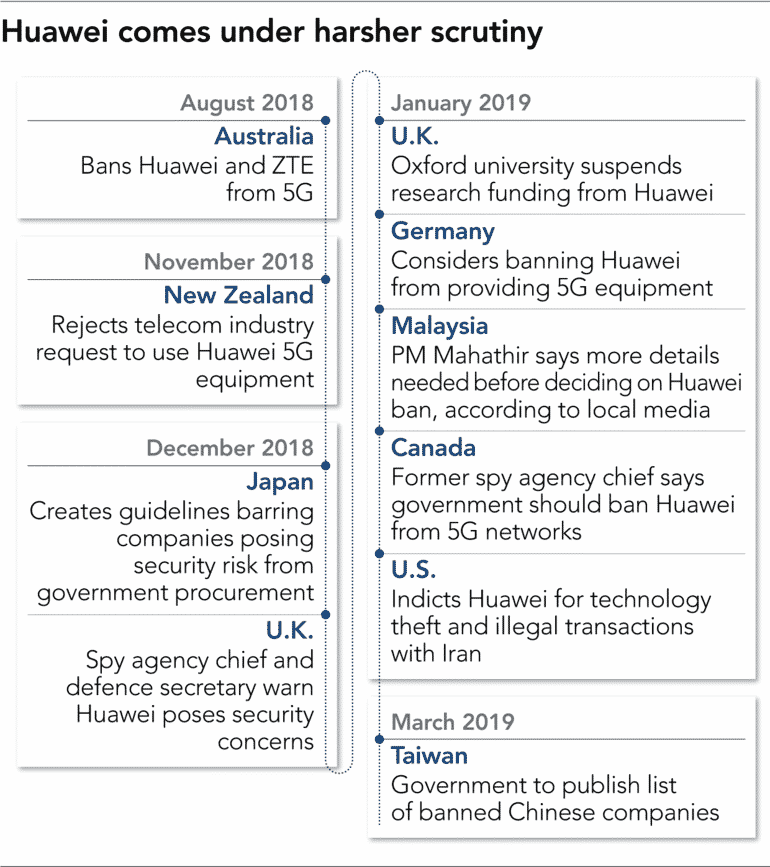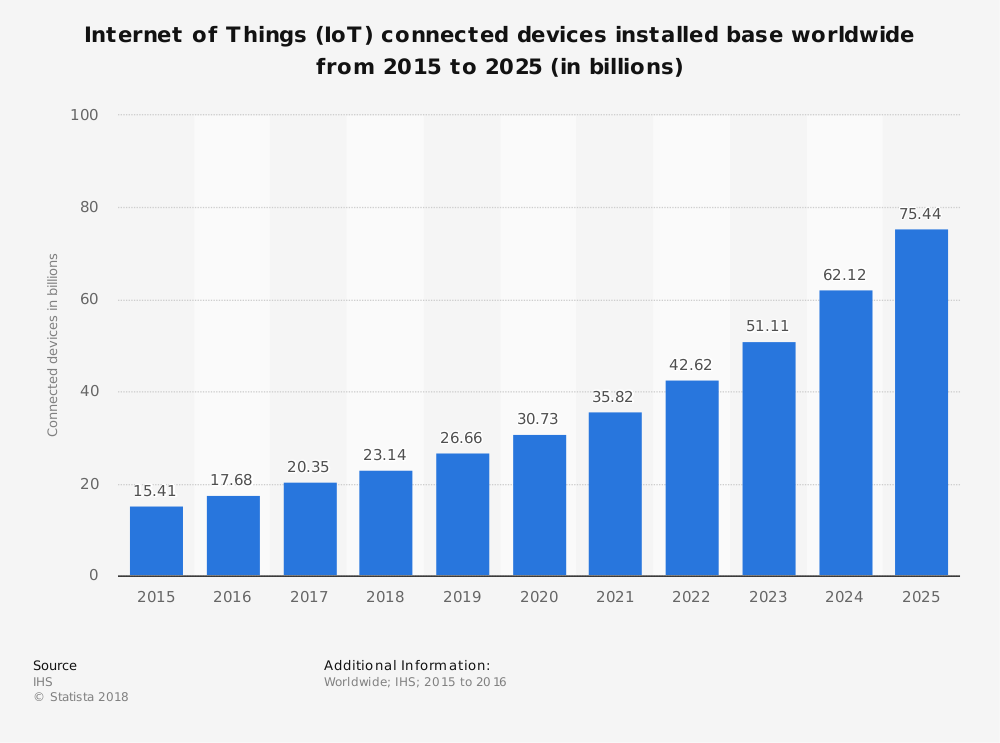Australia should think practically, not politically, over Huawei ban
In August 2018, amid a leadership shakeup, the Australian government banned Huawei, a Chinese technological giant who supports mobile broadband for about half of Australians, from building the country’s 5G networks.
Huawei’s 5G technology promised to provide the world with ultra-fast connectivity and zero latency download/upload. It will allow a million more devices – from smartphones to autonomous cars – to connect and operate better.

Countries that are against Huawei, or considering taking steps against the company. Source
Australia isn’t alone in its opposition to Huawei’s plans. Most European countries are in favour of Huawei, but the Trump administration in the United States (U.S.) has an entirely different view. According to the U.S. government, allowing a Chinese company to build critical infrastructure like 5G networks is risky for national security. They say the Chinese government could exploit the 5G network to spy on the world.
However, it appears that Australia may have to reverse its Huawei 5G ban.
Reasons why it is difficult for Australia to say no to Huawei
Banning Huawei may cause Australia to lose big in the global 5G race. Here are the reasons why Australia should rethink about its ban on Huawei:
- Increased Price
By banning Huawei – a leading 5G provider – Australia has reduced the nation’s sufficient and essential supply of telecommunications infrastructure as the world is preparing for the 5G technology launch. Further, the basic economics rule is that when supply drops, costs increase.
That’s why Americans own the second-highest prices in the world for mobile phone services. Ninety percent of wireless infrastructure sales in the U.S. are made by only two companies – Nokia and Ericsson. Also, by the quality mobile services in terms of download speeds, the U.S. ranks 61st in the world after Chile, Egypt, and Peru.
- Impact of Huawei Ban on TPG Telecom
TPG Telecom, a leading Australian telecommunications and IT company, said that the Australian federal government’s ban on Huawei had tattered their $2 billion plan to build the country’s newest mobile network.
TPG paid $1.26 billion for mobile spectrum in 2017 and has already invested $100 million of the total $600 million in construction. Due to the ban, the company had to halt its work on what was going to be Australia’s fourth major 4G mobile network after Telstra, Optus, and Vodafone.
- Ban doesn’t make sense
The reason for the ban was to protect national security, yet there is no evidence that Huawei technology is insecure. Headquartered in China, Huawei has undergone more scrutiny than other ICT (Information and Communications Technology) suppliers in the world.
In several markets, its source code has been meticulously reviewed by independent security specialists. In the 31 years since the inception of Huawei, there has been no public evidence of the company’s involvement in wrongdoing.
National security is obviously more important than download speeds. However, banning telecom suppliers on the basis of geographic origin simply doesn’t make sense. The telecommunications industry is borderless, and threats can originate from anywhere.
By 2024, nearly 40 percent of the world’s population and around 22 billion devices will be on the 5G network. The fifth-generation technology is so fast that vehicles will easily be able to drive on their own, robots will conduct remote surgeries, and people will download full-length, high-definition movies in nanoseconds. Missing out on such potentials, getting there too slowly, shouldn’t be Australia’s policy.

Total number of connected devices (in billion) globally by 2025. Source
Chinese companies can access more digital bandwidth than their global competitors that make their service faster and more reliable.
Final words
Smart governments often dispense with trust and proceed to verification. Instead of making pointless bans, they establish comprehensive risk-mitigation strategies based on international best practices. These practices include hiring independent and specialized security experts who review the source and monitor supply chain for potential breaches.
Smart governments often dispense with trust and proceed to verification. Instead of making pointless bans, they establish comprehensive risk-mitigation strategies based on international best practices. These practices include hiring independent and specialized security experts who review the source and monitor supply chain for potential breaches.
Banning is not a good option because it creates a security illusion which increases risk. It also blocks inbound investments essential for economic and technological growth. In 2017, Huawei invested around $15 billion on research and development (R&D), and last year alone, it had spent over $800 million on 5G researches. Australia’s economy could have gained from these major investments. The federal government should take real steps to improve security rather than making politically motivated bans.
If the Australian government is serious about national security, it may have to rescind the ban on Huawei. It should allow the company to work with Australian engineers to ensure the integrity of the future 5G communications infrastructure. Meanwhile, other nations will learn from Australia and avoid repeating their mistakes.